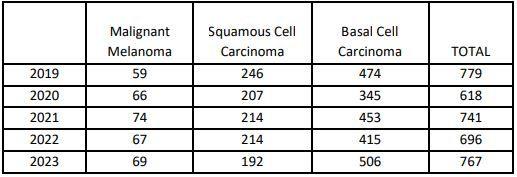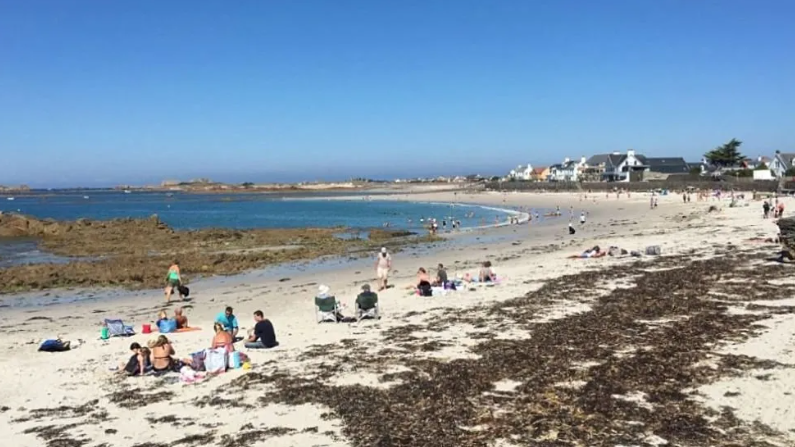Skin cancer diagnosis figures rise in Guernsey

Skin cancer figures are at their highest since 2019
- Published
The number of people diagnosed with skin cancer in Guernsey has hit the highest level in five years.
A Freedom of Information request to the Committee for Health & Social Care revealed there were 767 cases of skin cancers detected on the island in 2023.
That is an increase of 71 cases from 2022, and 12 fewer than in 2019 when there were 779.
Guernsey's Public Health said lifestyle factors and a higher strength of UV rays put islanders at greater risk than residents in other parts of the British Isles.
Di Matthews, Guernsey's public health strategic screening lead said: "We do tend to have higher rates of skin cancer than the rest of the UK.
"That is down to our high UV, plus we have a lifestyle were we are able to finish work and head to the beach so we are more likely to have those hours in the sun where we are having skin damage."
Ultraviolet (UV) rays from the sun can damage the DNA in skin cells and cause skin cancer.
A charity which provides free sunscreen to islanders says prevention is key, as it tries to encourage more people to protect themselves from the sun.
Mike Richards, of Male Uprising Guernsey (MUG) is calling on more employers to supply sunscreen to outdoor workers.
He said: "You can't force people to use it, but if its being slightly pressed upon there's more chance you will use it."

The figures for skin cancers were revealed following a FOI request
The Committee for Health & Social Care noted the cancer numbers vary depending on how many screening programmes are in place to actively find cases, and other factors.
The skin cancers detected were divided into malignant melanomas and non-melanocytic types.
Melanomas are a serious type of skin cancer that can spread to other parts of the body.
There are also non-melanoma skin cancers, which are generally more common and usually less serious.
Follow BBC Guernsey on X (formerly Twitter), external and Facebook, external. Send your story ideas to channel.islands@bbc.co.uk, external.
Related topics
- Published2 May 2024

- Published23 February 2023
